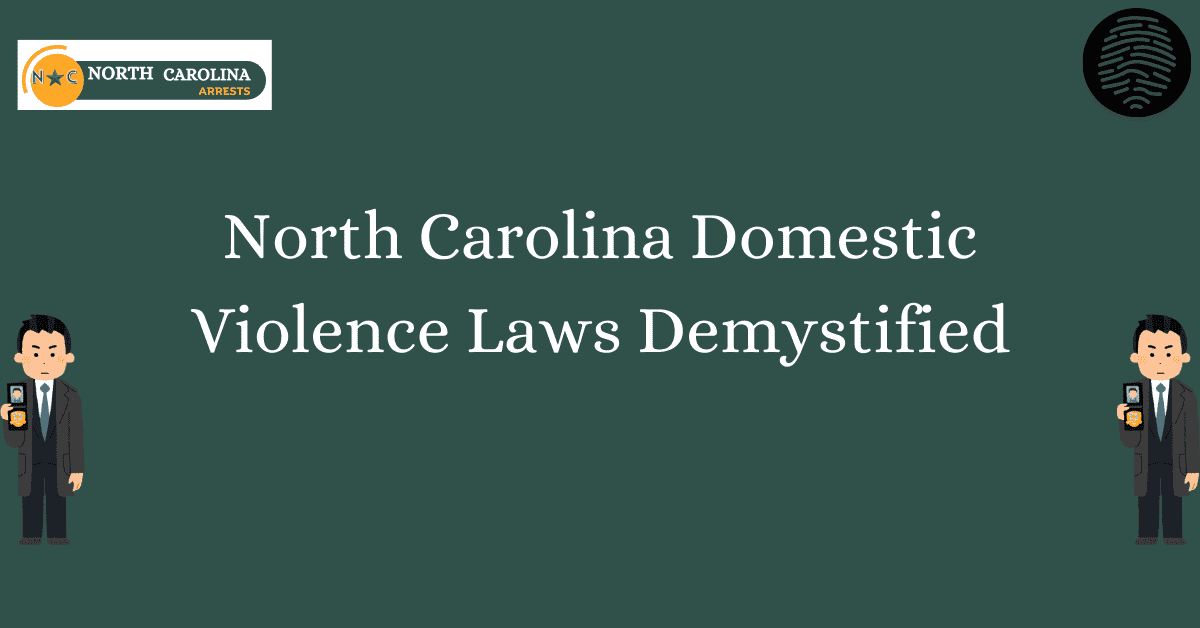North Carolina Domestic Violence Laws Demystified
North Carolina Domestic Violence Laws can be complex and daunting to navigate for many individuals. These laws are designed to protect victims of domestic violence and hold perpetrators accountable for their actions. Understanding the ins and outs of these laws is crucial for both victims seeking legal recourse and individuals looking to educate themselves on this important topic.
From defining what constitutes domestic violence to outlining the legal options available to victims, North Carolina Domestic Violence Laws cover a wide range of important issues. By shedding light on these laws, individuals can better protect themselves and their loved ones from potential harm, ensuring a safer and more informed community for all.
Overview of North Carolina Domestic Violence Laws
Domestic violence is a serious issue that affects countless individuals and families in North Carolina. Understanding the laws surrounding domestic violence is crucial in order to protect yourself and your loved ones. In North Carolina, domestic violence is defined as any type of abuse or violence that occurs between current or former spouses, individuals who live together, or individuals who have a child in common.
Definition of Domestic Violence in North Carolina
Domestic violence can take many forms, including physical abuse, emotional abuse, sexual abuse, and financial abuse. It is important to recognize the signs of domestic violence and understand that it is never acceptable behaviour. Victims of domestic violence have legal options available to them in North Carolina to seek protection and justice.
Legal Options Available to Victims
Victims of domestic violence in North Carolina can seek a protective order, also known as a restraining order, to keep their abuser away. These orders can provide legal protection and prevent further abuse. Victims may also have the option to file criminal charges against their abuser, depending on the circumstances of the abuse.
Protecting Yourself and Your Loved Ones
If you or someone you know is experiencing domestic violence, it is important to take steps to protect yourself and your loved ones. This may involve reaching out to local resources for support, creating a safety plan, and seeking legal assistance to navigate the complexities of domestic violence laws in North Carolina.
Resources for Victims of Domestic Violence
There are numerous resources available to victims of domestic violence in North Carolina, including shelters, hotlines, and support groups. These resources can provide emotional support, legal guidance, and practical assistance to help victims safely leave abusive situations.
Penalties for Perpetrators of Domestic Violence
In North Carolina, perpetrators of domestic violence can face serious legal consequences, including criminal charges, fines, and jail time. The severity of the penalties will depend on the nature of the abuse and the history of the perpetrator. It is important for perpetrators to be held accountable for their actions.
Seeking Help and Support in North Carolina
If you or someone you know is experiencing domestic violence in North Carolina, it is important to seek help and support. There are organizations and agencies dedicated to assisting victims of domestic violence and connecting them with the resources they need to stay safe and heal from the trauma of abuse.
Education and Awareness Initiatives
Education and awareness initiatives play a crucial role in preventing domestic violence and promoting healthy relationships. By raising awareness about the signs of domestic violence and providing education on healthy communication and conflict resolution, communities in North Carolina can work towards ending the cycle of abuse.
Impact of Domestic Violence on Communities
Domestic violence not only affects individual victims and their families but also has a broader impact on communities in North Carolina. It can strain resources, create a culture of fear and silence, and perpetuate cycles of violence. By addressing domestic violence at a community level, we can create safer and more supportive environments for all residents.
Frequently Asked Questions
Our Frequently Asked Questions section aims to provide detailed explanations of common queries related to North Carolina Domestic Violence Laws.
What is considered domestic violence in North Carolina?
In North Carolina, domestic violence includes various acts such as physical assault, sexual assault, stalking, and emotional abuse committed by an intimate partner or family member.
How can a victim of domestic violence seek protection in North Carolina?
A victim of domestic violence in North Carolina can seek protection by filing a domestic violence protective order, also known as a restraining order, which prohibits the abuser from contacting or coming near the victim.
What legal options are available for victims of domestic violence in North Carolina?
Victims of domestic violence in North Carolina can seek legal protection through civil protective orders, criminal charges against the abuser, and access to resources such as shelters and support services.
What are the penalties for committing domestic violence in North Carolina?
The penalties for committing domestic violence in North Carolina vary depending on the severity of the offence but can include fines, probation, jail time, and mandatory counselling or treatment programs.
How can someone report suspected domestic violence in North Carolina?
Suspected domestic violence in North Carolina can be reported to law enforcement by calling 911 or contacting local domestic violence hotlines and advocacy organizations for support and guidance on reporting procedures.
Are there resources available for victims of domestic violence in North Carolina?
Yes, North Carolina offers a range of resources for victims of domestic violence, including shelters, counselling services, legal assistance, and support groups to help individuals navigate the challenges of leaving an abusive relationship.







